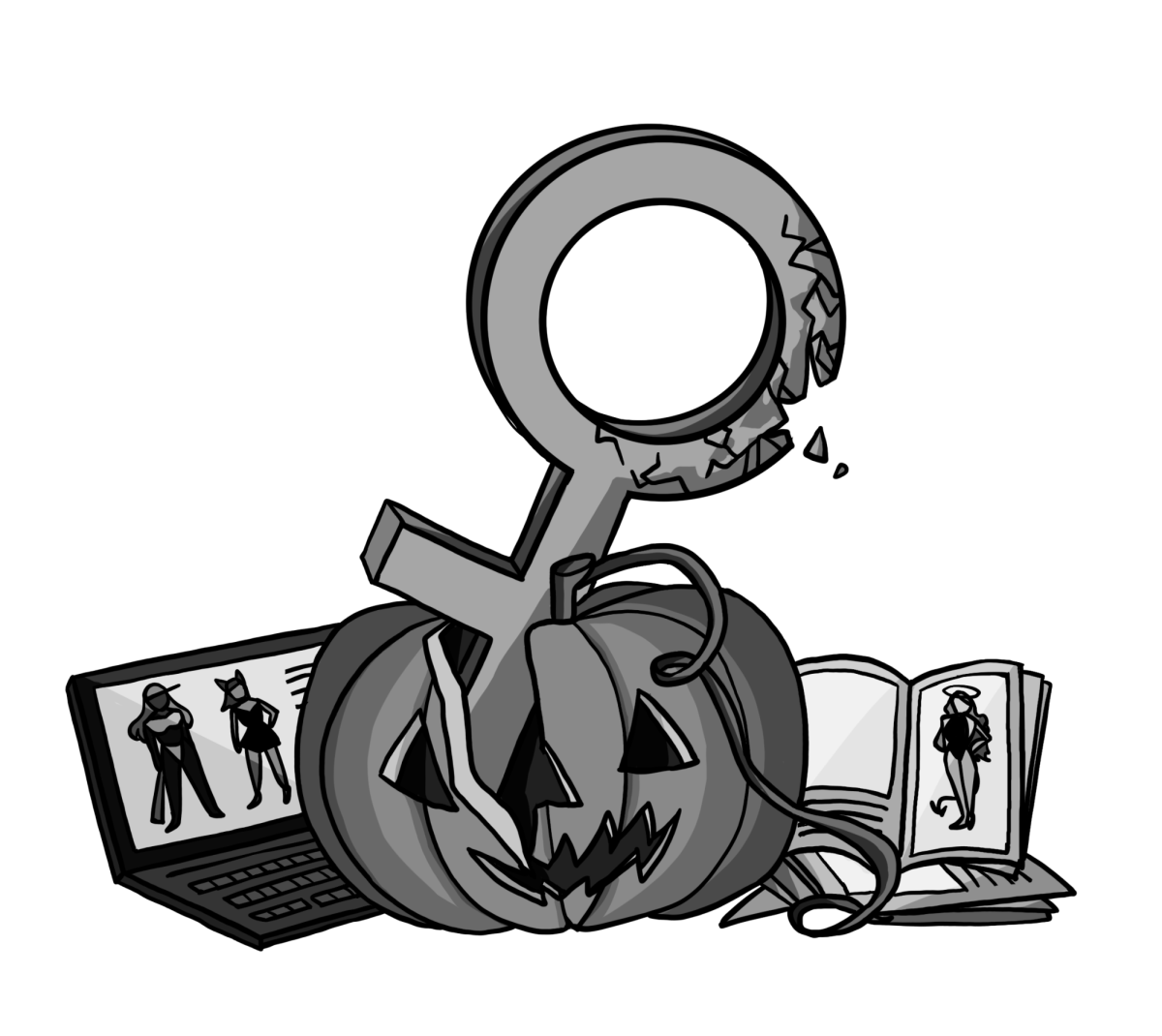“In girl world, Halloween is the one night a year when a girl can dress like a total slut, and no other girls can say anything about it.”
The iconic line by Cady Heron in Mean Girls is representative of a much larger issue: the objectification of women through commercialized Halloween costumes. Whether it is the “hot cop,” “innocent inmate” or “sultry swat officer,” websites and department stores like Spirit Halloween sell costumes targeted toward women, which many at SCHS find problematic.
Sophomore Bella Reyes sees a double standard between mens’ and womens’ Halloween costumes. Reyes believes that when girls do not want to show off their bodies, they should have alternative, less impractical options.
“I think the mens costumes are definitely more versatile. You can literally get anything there. But with women, half of the time it’s a short little body con dress, or the back of a corset,” Reyes said. “What if I just want to be a ninja turtle in full suit like a man can, but all they have is this little short dress?”
Reyes believes the expectation to dress up on Halloween encourages women to invest in cheap and stereotypical costumes because they are the most convenient option.
“That’s the first thing you can get right away off the shelves. And it’s just right there for you. It’s fast and quick,” Reyes said. “If you were to get something custom-made, it’s a lot harder to reach. It takes more time and also probably more money.”
Reyes wore Robin’s “Scoops Ahoy” outfit from “Stranger Things” last year as it was the only costume she felt comfortable in because it was not excessively short or revealing.
“I didn’t even really want to be Robin that year though, but it was one of the only options I had because all the stuff you can buy, it can be seen as very scandalous. Especially if I’m wearing that to school, it’s an automatic dress code. I don’t want that,” Reyes said.
Spanish teacher Amanda Vrabel believes that if a woman’s career is made into a costume, it should be designed more accurately. Women should be offered both revealing and practical options that fit their bodies.
“If I’m trying to be a nurse or a doctor, what would a nurse or doctor actually wear?” Vrabel said. “So as a woman, if I go out to look for a costume like that, it’d be nice for it to be available in a women’s cut or women’s sizing without it being this incredibly revealing costume.”
While they can be objectifying, career costumes can also boost confidence, according to freshman Geet Kaur. She finds career-related costumes to be a symbol of feminism, regardless of their design.
“If you’re dressing up as a lawyer or a judge or a doctor, I think that’s definitely empowering to women because it shows that women can be in any career,” Kaur said.
Math teacher Susana Hernandez sees the Internet as a commonplace for women to represent themselves. She believes society is progressing so that women do not need to buy revealing costumes if they do not want to.
“I think because of social media, there’s more dialogue, more women input, more women are put in place to represent other women. I think it’s starting to become more of a creative outlet and an empowering one,” Hernandez said.
According to Hernandez, if women collectively see a problem with revealing costumes, they can choose to avoid them. Instead of feeling the need to expose themselves to fit beauty standards, many women can find beauty within themselves.
“I think the fact that we get to be creative or that you get to choose what costume you want, no one’s forcing you to. I think that gives you power. The fact that you can choose to make the choice for yourself,” Hernandez said.
According to senior Karyme Olivares, no matter how a woman dresses for Halloween – sexualized or not – what she chooses to do with her body is her choice.
“I hope this year we see more women dressed up as whatever they want to be, like careers, lawyers, the Supreme Court – whatever you want to be you can be,” Olivares said.
Reyes dislikes Halloween costumes designed by men because they compel women to only wear what appeases the male gaze. Olivares sees this as problematic, stating that women should wear whatever they want and not be held responsible for how their body looks in a certain costume.
“I don’t think it’s in my power what I wear or what I don’t wear to avoid distracting a guy because he can’t keep his gaze to himself. It’s not my problem,” Olivares said.


